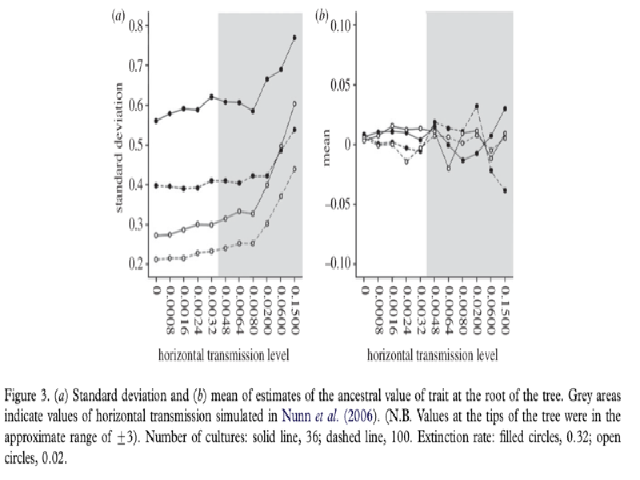Is horizontal transmission really a problem for phylogenetic comparative methods? A simulation study using continuous cultural traits

Authors:
Citation:
Details:
Published: 9 September, 2010.
Download:
Abstract:
Phylogenetic comparative methods (PCMs) provide a potentially powerful toolkit for testing hypotheses about cultural evolution. Here we build on previous simulation work by Nunn et al. (2006) to assess the effect horizontal transmission between cultures has on the ability of both phylogenetic and non-phylogenetic methods to make inferences about trait evolution. We found that the mode of horizontal transmission of traits has important consequences for both methods. Where traits were horizontally transmitted separately PCMs accurately reported when trait evolution was not correlated even at the highest levels of horizontal transmission. In contrast, linear regression analyses often incorrectly concluded that traits were correlated. Where simulated trait evolution was not correlated and traits were horizontally transmitted as a pair both methods showed increased levels of positive correlation with increasing horizontal transmission. Where simulated trait evolution was correlated increasing rates of separate horizontal transmission led to decreasing levels of correlation for both methods, but that increasing rates of paired horizontal transmission did not. Furthermore, the PCM was also able to make accurate inferences about the ancestral state of traits. These results suggest that under certain conditions PCMs can be robust to the effects of horizontal transmission. We discuss ways that future work can investigate the mode and tempo of horizontal transmission of cultural traits.
Related links / Media:
Nothing found.